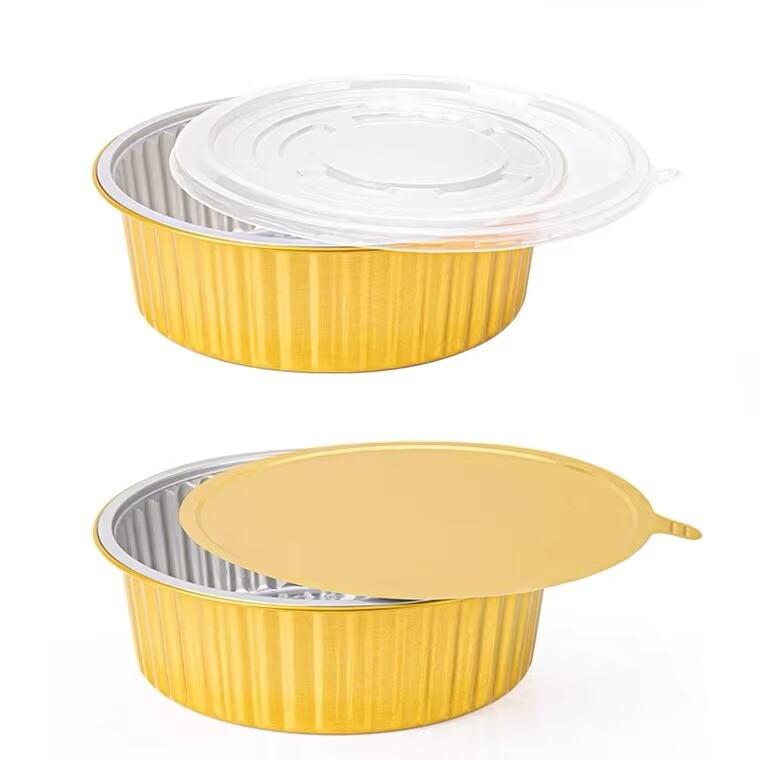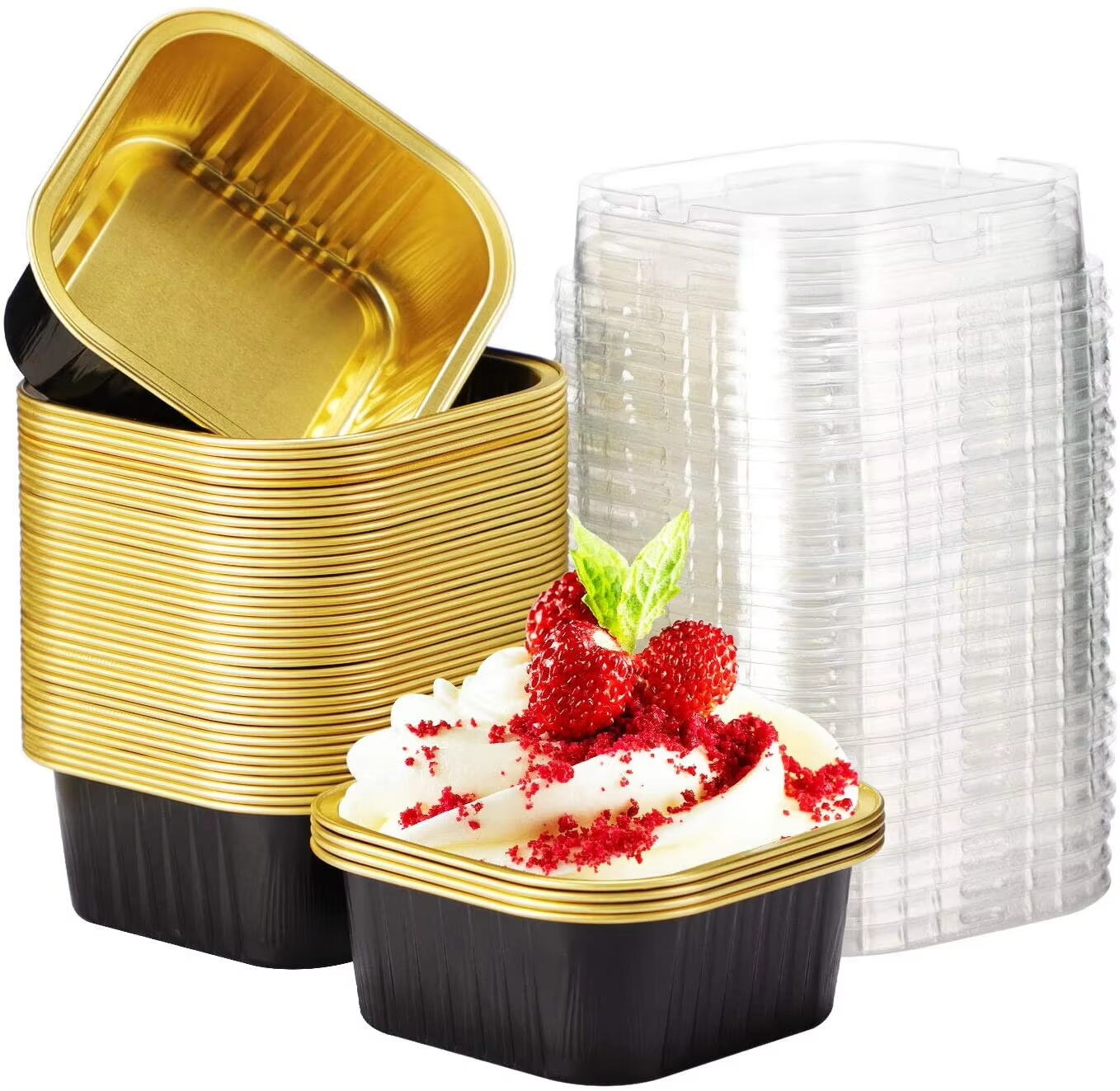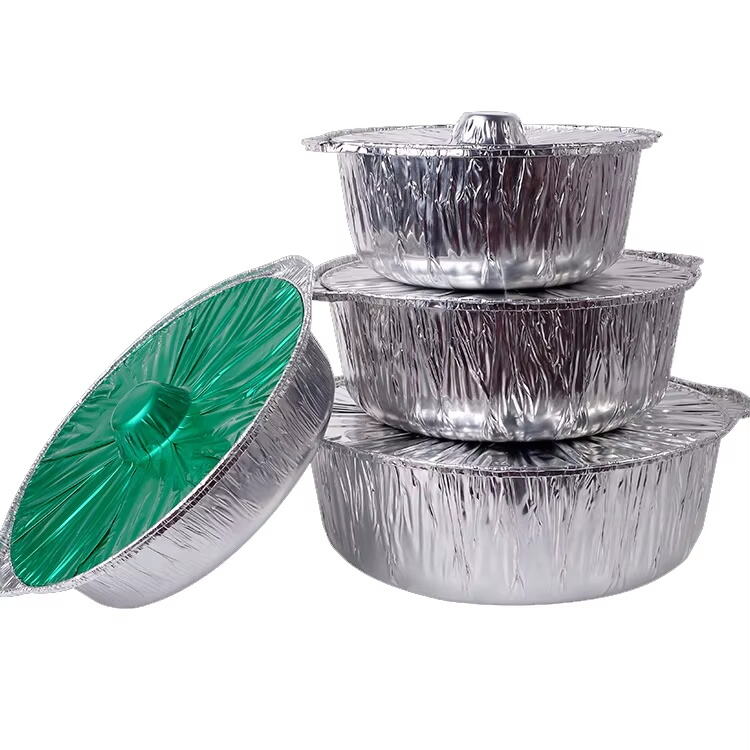Introduction to Aluminium Food Packaging in Modern Preservation
The Rise of Aluminium in Food Storage Solutions
Food packaging hasn't stayed the same over time. We've seen it change quite a bit, moving away from old fashioned stuff like glass jars and tin containers towards newer options, especially aluminium. Why? Well, aluminium just works better for so many applications in food packaging these days. The numbers back this up too. Market analysts have noticed that aluminium's taking up more space in the food packaging world each year. Take a look at what Precedence Research says about aluminium cans specifically. Their forecast shows the market growing from around $59 billion in 2024 all the way to nearly $86 billion by 2032. That's pretty impressive growth at about 4.8% per year. These figures tell us something important about how manufacturers are thinking about their packaging choices nowadays.
Consumer preferences are increasingly influencing this trend, as there is a growing demand for sustainable packaging solutions. Aluminium stands out due to its recyclability and reduced environmental impact. As consumers become more environmentally conscious, the demand for aluminium food packaging continues to expand, promoting sustainability in packaging practices.
Key Properties Making Aluminium Ideal for Packaging
The unique characteristics of aluminium have made it a go-to material for food packaging across the industry. Weighing far less than alternatives means big savings when shipping products around the country. Companies report saving roughly 70% on transport expenses compared to those still using glass bottles. These savings translate directly into lower operational costs for businesses while also cutting down on fuel usage during transit. What really stands out though is how easy aluminium is to recycle again and again. Most consumers know they can toss empty cans into the bin without guilt. Studies show that aluminium has one of the highest recycling rates among common materials, which means manufacturers can keep making new products from old ones rather than relying solely on virgin resources. This closed loop system dramatically cuts greenhouse gas emissions throughout the product life cycle when compared to plastic or glass alternatives.
Aluminium doesn't rust easily which makes it last longer when storing food stuffs, so food stays fresh for much longer time. What makes this metal really good for packaging is how well it blocks out both light and air, which helps keep products safe and extends how long they can sit on shelves without going bad. No wonder more companies are turning to aluminium these days. It works great and actually fits with efforts to be greener since it lasts so long and can often be recycled multiple times through different manufacturing cycles.
Barrier Protection Against External Elements
Blocking Light and UV Radiation
Aluminum packaging does a great job at blocking out light and those harmful UV rays, which helps keep food fresh and safe for longer periods. When food gets exposed to light, particularly those invisible ultraviolet rays, it starts breaking down faster. The nutritional value drops off and the taste changes too. Some research points to pretty significant losses - around 30% of certain important vitamins can disappear if left in the light too long. What makes aluminum so good? It creates this physical barrier between the product and whatever light might get through. That means foods stay on store shelves longer without going bad, and consumers get what they expect when they open the package. For things like dairy products or ready meals that spoil easily when hit by sunlight, this kind of protection really matters. No wonder so many manufacturers still turn to aluminum despite all the talk about eco-friendly alternatives these days.
Preventing Moisture and Oxygen Infiltration
Aluminum plays a big part in keeping food fresh by stopping moisture from getting inside. The material has really low permeability, so when food is wrapped in aluminum packaging, it creates a strong barrier against water vapor that would otherwise ruin the product. Moisture isn't the only problem though. Oxygen gets into packaged foods too, and this leads to oxidation which changes how food looks, tastes, and what nutrients are left in it. Research shows that aluminum packaging forms such tight seals that oxidation happens much slower, meaning food stays good longer on store shelves. For companies dealing with perishables, this means aluminum remains one of the best options available for preserving both quality and safety throughout transportation and storage.
Shielding Against Microorganisms and Contaminants
The reason aluminium remains so popular for food packaging has everything to do with how well it blocks out microbes. When manufacturers follow those strict food safety regulations, they're actually taking advantage of aluminium's natural defenses against spoilage organisms. What makes this metal special is that it doesn't have pores where bacteria can hide, nor does it react chemically with what's inside the package. Food stays protected from outside dirt and grime because nothing sticks to the surface. Plus, cleaning these packages after production is straightforward compared to other materials. For companies concerned about keeping their products safe throughout distribution, this protective quality really matters. We've all heard stories about contaminated foods causing illness outbreaks, so having reliable barriers like aluminium helps prevent such problems before they even start.

Temperature Control and Thermal Efficiency
Heat Resistance for Cooking and Reheating
Aluminum stands out because it handles heat really well, which makes it great for cooking and reheating stuff. Most other packaging materials just can't take the kind of heat we put our food through in regular ovens or microwave ovens. Why? Well, aluminum melts at around 660 degrees Celsius, way hotter than what most kitchen gadgets ever reach. When we look at plastics instead, they tend to break down under heat and might even leach some bad stuff into our food. Aluminum doesn't react this way though, so it stays safe to use. That's why so many people trust aluminum containers for their meals. The heat resistance keeps everything cooking safely without compromising how good the food tastes or looks.
Switching from regular packaging stuff to aluminium brings real benefits when cooking. Take Styrofoam for example it just melts away at high temps, but aluminium stays strong and safe even when heated up. Another thing worth mentioning is how aluminium spreads heat all over the surface, so there are no those annoying hot spots that burn parts of leftovers while reheating. This means food keeps tasting good and stays properly cooked throughout. Because of these qualities, many chefs and home cooks have started relying on aluminium containers for storing and heating meals across different kitchens worldwide.
Insulation Properties for Cold Storage
Aluminum works really well as an insulator, making it great for keeping things cool when storing and moving food around. Because aluminum doesn't let heat pass through easily, perishables stay at their proper temperatures much better than other materials. This kind of thermal protection matters a lot because spoiled food means wasted resources and money down the line. Research points to something we already know from experience: when temps stay stable during transport, there's just less waste overall. That's why so many companies rely on aluminum containers for everything from dairy products to frozen meals. The metal helps maintain product quality while also cutting down on losses across the supply chain.
Looking at actual applications, aluminum stands out because so many industries rely on it when they need strict temperature control. Take transportation for example. Refrigerated trucks and shipping containers made with aluminum help keep things cool during transit. The material acts as a good insulator, which means perishable goods stay fresh longer and spoil less frequently. Companies using aluminum for packaging in their cold storage operations typically save money while reducing food waste at the same time. Supermarkets and pharmaceutical firms have reported these advantages after switching to aluminum solutions for their refrigeration needs.
Extending Shelf Life Through Contamination Prevention
Reducing Oxidation and Spoilage Rates
Aluminum packaging does wonders when it comes to keeping food fresh by cutting down on oxidation and spoilage, two big problems that shorten shelf life and ruin quality. What makes aluminum so good at this? Well, its barrier properties stop oxygen from getting to the food, and we all know oxygen is basically the enemy of freshness. Research backs this up too. A study published last year found foods kept in aluminum containers spoiled much slower than similar items packed in plastic or paperboard. The difference is pretty impressive actually. Food stays edible longer in these packages, meaning they can be stored for extended periods without going bad. We're talking real numbers here. Some packaged goods last almost double as long before they start to deteriorate compared to what we see with traditional packaging methods. This matters because it directly impacts how much food gets thrown away at the end of the day.
Maintaining Freshness with Airtight Seals
Seals that keep air out of aluminum packaging play a big role in keeping food fresh because they stop air from ruining what's inside. These seals work by making sure the package stays tightly shut, so oxygen and moisture cant get in and make things go bad faster. People really appreciate when their food stays fresh for longer periods, and this freshness factor actually makes a difference when shoppers pick between different products on store shelves. Most folks will choose items that come in sealed containers if given the option. Beyond just making customers happy, good packaging solutions create real money benefits for businesses too. Fresh produce commands higher prices at stores, so investing in proper sealing technology pays off for manufacturers and grocery chains alike.

Hygiene and Safety Advantages of Aluminium Packaging
Non-Toxic and Non-Reactive Material Composition
Aluminum's non-toxic properties make it one of the safest choices available for food packaging these days. Unlike many other materials, aluminum doesn't react with food items or let out harmful chemicals even when exposed to heat. Plastic containers can sometimes release unwanted substances over time, but aluminum stays put and keeps what's inside protected. Food safety organizations including the FDA and EFSA have done extensive research on this stuff, and they all agree that aluminum meets strict safety requirements for contact with edible products. What matters most is that food stays fresh tasting without any weird aftertaste from the container itself. For manufacturers looking to produce packaging that meets international safety guidelines while keeping consumers healthy, aluminum remains a top choice across the globe.
Antibacterial Surface Benefits
The antibacterial nature of aluminium makes it really effective for keeping food fresh and hygienic. Studies have found that when food comes into contact with aluminium surfaces, bacteria just don't grow as easily, so the food stays purer and lasts longer. Compared to things like stainless steel or plastic containers, aluminium actually has fewer bacteria sticking to it after repeated use. Tests done in food labs show this time and again, especially when looking at how well different materials prevent bacterial growth over time. For packaged goods that need to stay safe on store shelves for weeks or months, this matters a lot. Beyond just making surfaces cleaner, these properties give an extra bit of security against contamination risks during storage and transportation.
Compliance with Global Food Safety Standards
Aluminum packaging meets all sorts of international food safety requirements, which makes it pretty reliable stuff for packaging products worldwide. Regulatory bodies like EFSA in Europe and FDA over here in the US have long recognized aluminum because it doesn't react with foods and stays safe when coming into contact with them. For businesses, this means they can confidently offer their products knowing there's regulatory backing behind the packaging choice. When companies fail to follow these rules though, problems happen fast food gets recalled, customers lose faith, and brands suffer damage. That's why sticking to those strict packaging standards matters so much for keeping people safe while also protecting the reputation of food suppliers across different markets.
FAQs
What makes aluminium an ideal choice for food packaging?
Aluminium is ideal due to its lightweight nature, recyclability, durability, and excellent barrier properties against light, oxygen, and moisture, which help preserve food quality and extend shelf life.
Why is aluminium's recyclability important?
Aluminium's recyclability reduces environmental impact and contributes to sustainability, aligning with consumer demand for environmentally friendly packaging solutions.
How does aluminium provide barrier protection?
Aluminium blocks light and UV radiation, prevents moisture and oxygen infiltration, and acts as a barrier against microorganisms, ensuring food safety and longevity.
Is aluminium safe for reheating food?
Yes, aluminium is safe for reheating because it withstands high temperatures without releasing harmful chemicals, unlike some other packaging materials like plastics.
Does aluminium comply with food safety standards?
Yes, aluminium complies with global food safety standards set by authorities like the FDA and EFSA, ensuring its non-reactivity and safety in food contact applications.


